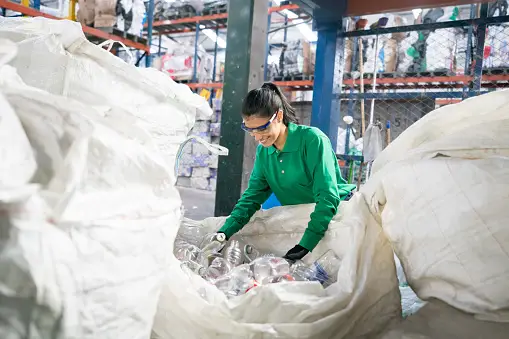Today’s world has made recycling an essential part of sustainable living, with environmental issues dominating international conversations. People and groups can help preserve our planet by cutting back on trash and reusing items. The importance of recycling systems are examined in this article, with particular attention paid to paper recycling, water recycling, and creative uses of plastic recycling equipment.
Taking Part Actively for a Greener Future
Building a cleaner and healthier environment requires active participation in recycling activities. Each person contributes significantly to the group’s endeavor to cut waste and preserve resources. In order to promote recycling at the workplace, at home, and in communities, it is essential.
Recycling Water: Preserving the World’s Life Source
One very important component of sustainable living is water recycling. Water conservation is essential in light of the growing scarcity of water on the planet. Communities can repurpose cleaned wastewater for industrial activities and irrigation by installing water recycling systems. This reduces pollution from natural water sources while also conserving freshwater.
The use of cutting-edge water recycling technologies has grown more widespread in urban areas. These systems treat wastewater to make it safe for non-drinking purposes. Phrases like “water recycling” are essential for raising awareness of sustainable water management techniques.
Strengthening the Circular Economy through Paper Reuse
Another pillar of the recycling movement is the recycling of paper. The process of making paper from virgin pulp uses a lot of energy and contributes to deforestation. Paper recycling lowers the need for new raw materials while also saving energy and lowering air pollution from the paper industry.
It is recommended that communities everywhere actively engage in paper recycling initiatives. Easy actions like separating paper waste from other kinds of waste greatly improve the effectiveness of the recycling process. To promote a culture of responsible paper consumption and recycling, “paper recycling” must be incorporated into educational initiatives and public awareness campaigns.
Machines at the Front of Plastic Recycling Innovations
Plastic pollution has become a major environmental problem that requires creative solutions on a global scale. Machines that recycle plastic are essential to solving this problem. These machines effectively process used plastic materials, turning them into raw materials for new products. Plastic trash has a far smaller negative environmental impact because of our closed-loop strategy.
To support a more sustainable and circular economy, industries and individuals alike are urged to invest in and promote the use of such machines.
Preservation of the Environment
Individual acts lay the groundwork for environmental conservation. Communities that actively engage in recycling initiatives can significantly reduce waste and lessen the demand placed on natural resources.
Recycling programs are advantageous for the economy as well as the environment. Reusing materials lowers production costs for industries and lessens the need to extract raw materials. This may, therefore, result in an increase in employment in the manufacturing and recycling industries.
A Small Part in the Story of Recycling
The focus ought to be on people and communities taking an active role in recycling initiatives. The active voice should be prioritized throughout the majority of the text, while passive constructions may be employed sometimes for extra variety.
Educational Efforts: Fostering a Recycled Mentality
Educational initiatives greatly aid in the development of a recycling mindset. We may establish environmentally sensitive ideals in the next generation by incorporating lessons on environmental sustainability into school curricula.
Educational establishments can host workshops and seminars to inform students and the general public about the value of recycling in partnership with environmental organizations. When combined with interactive sessions, practical demonstrations can improve comprehension and encourage active involvement.
Participation in the Community: The Spark of Change
The best results from recycling come from community-wide initiatives. To create and sustain effective recycling systems, local businesses, governments, and citizens must work together. Participation from the community is essential to making recycling programs easily accessible, convenient, and understood by all participants.
This encourages locals to be aware of their recycling practices by helping to explain the specific target areas of recycling activities.
Technology’s Place in Recycling Innovations
Technological advancements have significantly increased the efficacy of recycling procedures. Recycling facilities with state-of-the-art sorting technology make the process of separating various materials easier and more efficient. The development of smart recycling bins with sensors and data analytics further improves optimized waste management.
Technology integration, such as the usage of “plastic recycling machines,” not only increases recycling accuracy and speed but also creates new opportunities for innovative approaches to persistent environmental problems. It is essential that we keep encouraging the use of these technological innovations on an individual and industrial level as we accept them.
To sum up, recycling is a duty that each and every person has for the health of the earth, not just a choice. We contribute to a sustainable future by actively engaging in recycling programs, implementing water recycling techniques, supporting paper recycling initiatives, and accepting the use of plastic recycling devices.

